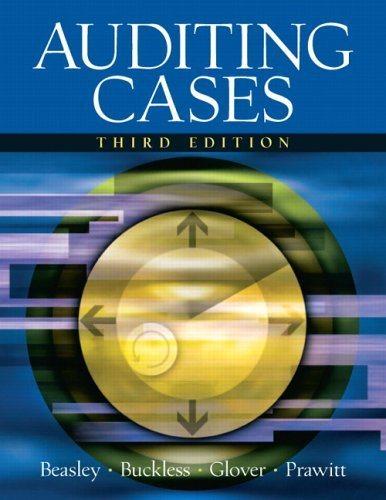Question
Assume a company produces and sells only two products14,000 units of Product A and 6,000 units of Product B. The selling prices are $69 per
Assume a company produces and sells only two products14,000 units of Product A and 6,000 units of Product B. The selling prices are $69 per unit for Product A and $96 per unit for Product B. Product As direct materials and direct labor costs per unit are $35 and $12, respectively. Product Bs direct materials and direct labor costs per unit are $34 and $15, respectively. The company uses a plantwide overhead rate based on direct labor dollars. It is considering implementing an activity-based costing (ABC) system that allocates all of its manufacturing overhead to three cost pools. The following additional information is available for the company as a whole and for Products A and B:
| Activity Cost Pool | Activity Measure | Estimated Overhead Cost | Expected Activity | |||
| Machining | Machine-hours | $ | 300,000 | 15,000 | MH | |
| Machine setups | Number of setups | $ | 150,000 | 200 | Setups | |
| Product design | Number of products | $ | 80,000 | 2 | Products | |
| Activity Measure | Product A | Product B |
| Machine-hours | 9,000 | 6,000 |
| Number of setups | 50 | 150 |
| Number of products | 1 | 1 |
Using the companys plantwide approach, the product margin for Product A is closest to (Round your intermediate calculations to 2 decimal places.):
Multiple Choice
-
$(13,400)
-
$(15,400)
-
$(36,400)
-
$(3,400)
Step by Step Solution
There are 3 Steps involved in it
Step: 1

Get Instant Access to Expert-Tailored Solutions
See step-by-step solutions with expert insights and AI powered tools for academic success
Step: 2

Step: 3

Ace Your Homework with AI
Get the answers you need in no time with our AI-driven, step-by-step assistance
Get Started


